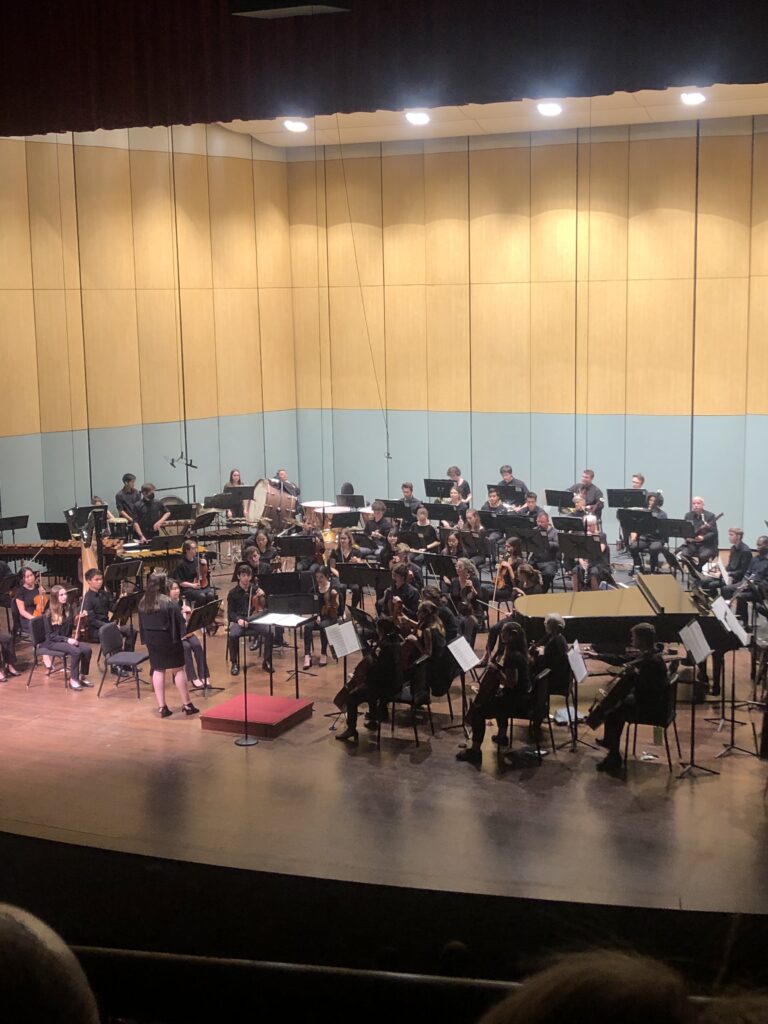Music has many benefits for students. Research shows music education helps a student’s wellbeing. It has a positive impact on the overall development and growth. It’s an outlet for creativity when students play an instrument, sing, or dance.
- Students develop cognitively with music. It often improves language and memory. Students have better attention spans and mathematical abilities.
- Music allows students to express and learn about their emotions without fear.
- Regardless of the kind of music the student learns, they learn teamwork, cooperation, leadership, communication, and patience.
Music with an Instrument
Learning and playing music challenges a student and lights up the brain. It activates emotional responses through memory, provides pleasure, motivates, and rewards. It’s said that music helps students with hearing, memory, and motor skills. When students study music, the structure of the brain is altered. It develops the left side of the brain, which processes language and reasoning.
Various studies prove that learning the language of music benefits overall mental development. Students who study music do better on standardized tests and get better grades. Once students begin playing an instrument, they experience a personal achievement.
The Benefits of Chorus
A school’s chorus program is good for students of all grades. An early introduction to chorus singing supports learning, builds social skills, and promotes academic success. Choral singers increase their interest in social skills, civic involvement, and philanthropy. They are also more interested in other art forms than non-chorus members.
Songs sung by students in a choir are beautiful. Music is a popular art form of public participation. Students involved in the chorus are likely to stay involved in the future. Students are not expected to find barriers when involved in the chorus.
Singing in the chorus in school helps students improve their vocal skills. They improve reading and memory skills. Involving young students in the chorus builds lifelong learning.
Music for Math
Students who learn music also learn math. It is full of mathematical concepts. They learn rhythm, ratios, fractions, and proportions. Students learn fractions by dividing a musical note into halves, quarters, eights, and sixteenths. Students learn time signatures and beats per minute. Music and math show symmetry to create patterns.
Whether playing an instrument or singing in a choir, music releases stress. It helps student manage their feelings. Music allows students to relieve their emotions through singing, playing an instrument, or composing music. It also teaches students to appreciate music benefits their academic success and lifelong learning.



